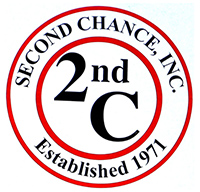You have questions – we have answers…
If you’re “coming on your own,” call 792-HELP or (510) 886-8696 (our Hayward location) and say you’d like to start treatment services. You’ll be told when the next group is (that same day!). We will have you come in a half hour early for a brief orientation where you can be screened, be given basic info about our various services and how to become a participant, and sign a confidentiality form.
If you are being referred by a Court for a Diversion Program like DUI, PC1000, Domestic Violence, or Anger Management, call (510) 792-HELP (4357) and ask to speak to the Registrar’s Office. They’ll answer whatever questions you have about fees, available classes, etc.
If you are being referred by a Court for treatment or “Court Services” or “Drug Court” or anything other than tone of the Diversion Program listed above, call (510) 792-HELP (4357) and ask for the Court Services Coordinator. This is also the best contact if you were referred by Probation or your employer.
If you are being referred for “Prop 47” or “AB109” or have any questions about those programs, call the above number and ask for Tommy Botkin, the Reentry Coordinator or the Court Services Coordinator.
Most people wanting treatment and recovery services pay nothing.
People attending Diversion Programs are charged a fee. We try to assist low income participants.
You can usually come in for treatment and recovery services the same day you call. There is never a waiting list for these. Court Diversion participants are scheduled for the next available class, usually within a couple of weeks.
Yes. Our experience strongly suggests to us that for most addicts and alcoholics, Abstinence is the safest option. But people may try a lot of other options before they choose to quit using entirely. We will support you while you make this decision for yourself. Also, not everyone who gets into trouble with drugs or alcohol is an addict or alcoholic. In fact, the treatment community today usually talks about mild, moderate, or severe Substance Use Disorders instead of addiction or alcoholism.
Diversion Services last either a specific time (such as DUI, which comes in 3-month, 6-month and 9-month versions) or a period set by the Judge or Probation Officer who refers you.
Treatment Services aren’t measured in time, but in progress. You and your counselor will agree on treatment goals (such as stable sobriety, clean and sober coping skills, employment, etc.) You are “done” when you meet these.
You are free to stop coming any time you wish. You are welcome back any time you wish. Some of us dropped in and out of treatment and recovery for quite a while until we got the hang of living the life we wanted. (If you were sent by the Courts, your leaving or returning is between you and them).
We treat medical marijuana the same way we treat any other doctor-prescribed medication. You can participate in services as long as you aren’t “loaded.” We also ask you not to smoke right before you come and to change your clothes if you’ve smoked recently. This is because the smell of marijuana is a “trigger” to some participants.
As for recreational marijuana, it’s just like alcohol: you can’t participate in services if you are under the influence.
Yes it is. We can’t disclose anything we hear without a signed Consent form. The exceptions are information about child or elder abuse or threats of serious harm to someone; we are required by law to alert the proper authorities in these cases.
The fact that you are coming here—not what you talk about—is entered into electronic records that the county, state and federal agencies who fund us have access to. These agencies may also collect demographic data (age, gender, race, etc.) and keep track of the number of services you receive. Demographics track what kind of people come to Second Chance for quality control (such as checking to see we don’t discriminate against any class of people). Counting services tells them how much to pay us.

